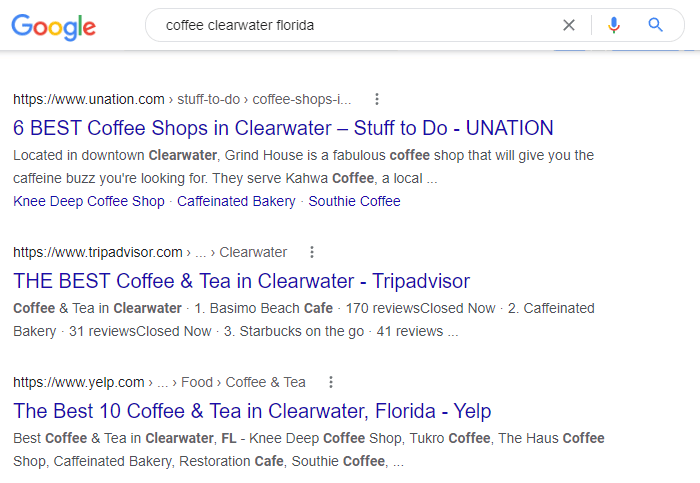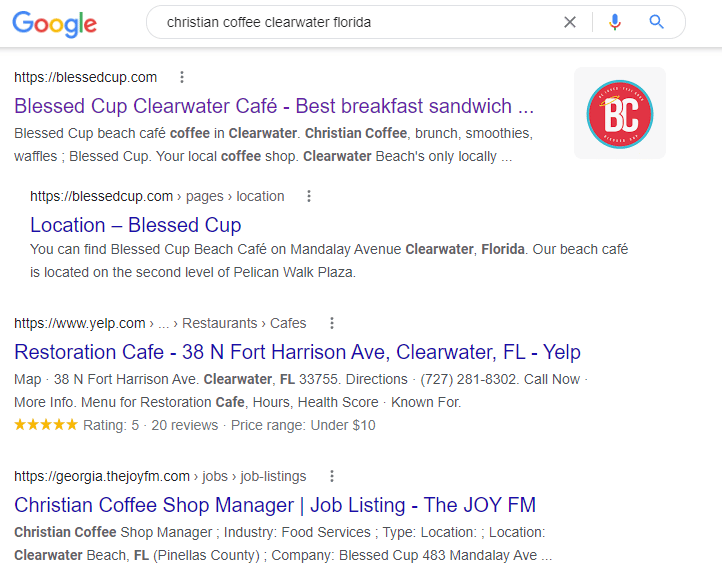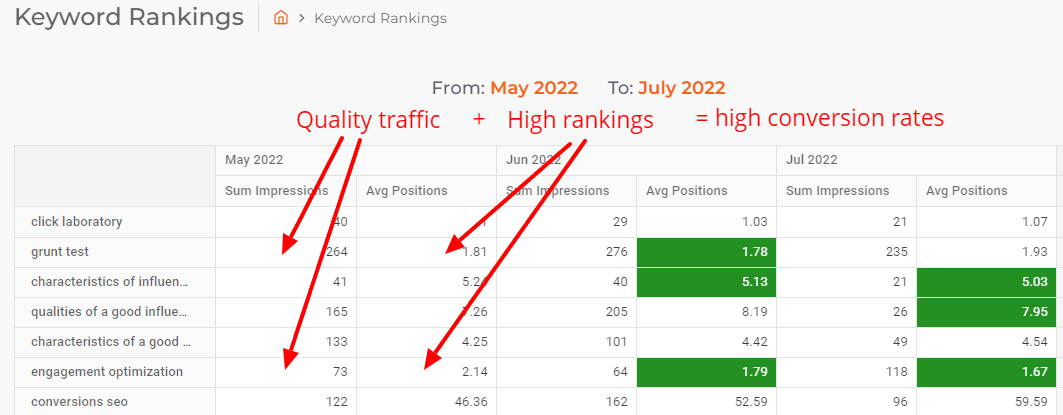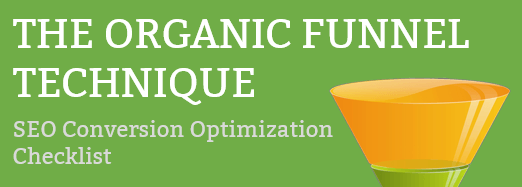
If you’re reading this, you want to rank higher on Google. You’ve signed up on SEMRush for tracking your keywords, you’ve done link building, you’ve tried writing blog posts weekly, you’ve tried to make your content “go viral” but you’re still on page 2 or 3 for your targeted keywords.
Its an extremely frustrating task trying to get into the top 10 for your target terms.
Google of course knows this, but they don’t care about your business even if you do spend six figures for ads.
Here is the key that will change how you think about ranking that you need to seriously take into consideration when trying to rank high.
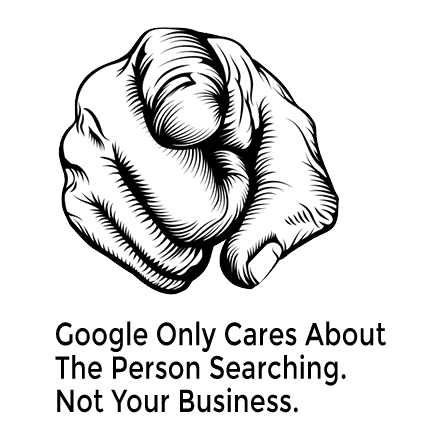
Most companies make the mistake of thinking about how to game the system and how to rank higher. But Google only cares about giving the best possible search results for visitors. There are 1000s of factors that Google looks at to make this happen.
The unfortunate reality is that there are many possible results, such as your content, that could claim to be the best possible search result.
So let’s look at what we need to do to get your content more relevant than the current ranking, highly relevant content of your competitors.
Your Content Relevance to The Searcher’s Problem
Google, and any other search engine is not simply a directory. They want to provide the best possible answers for people searching it possibly can. This way, they keep using their tool rather than switching. Its why Bing and Yahoo are so dwarfed by Google because people have a good experience with Google.
What happens though when there are 20 competitors in your local market all competing for similar key interests?
Your strategy is the same whether you are starting out small or whether you have been around a long time. The goal is to focus on creating content that has the best answer to what the person is searching for AND having brand clout (awareness) around the keyword.
Without both of these, it is super hard to rank.
As an example, let’s assume a person is on vacation in Clearwater Florida, and they are looking for a local coffee shop. If I simply search “coffee Clearwater Florida” the top three results are:
Now, if you are a coffee shop in that area, of course you want to rank first for “coffee” when someone is looking for a coffee shop there. Doing that is possible, but if you’re way down in the rankings, it won’t happen overnight. So where do you start? It begins by ranking for less competitive terms and creating the content to rank better than Yelp.
As an example, there is a specialty coffee shop in the area which serves the best authentic waffles and coffee you can find. They also serve the local churches and communities in the area, so if you search on “Christian coffee” then this coffee shop is ranked first in their area. The Blessed Cup has both brand awareness and the content created that enables them to rank first. It doesn’t deliver as much traffic as just “coffee shop” but they have continually come up in the ranking over time and are now on the first page for that term.
Google understands that someone vacationing in Clearwater that is searching from their mobile device for coffee isn’t searching for an online order of coffee or getting a coffee from a Starbucks in Seattle. Google is taking in all the possible factors they can to produce the absolute best results, the most relevant results to what they were searching for.
Content Marketing & Brand Awareness
Unless you are searching for something local, when you search on general terms on Google you’re typically going to get larger companies in the top results. The reasons for this are clear. They are able to create content to meet a wide range of search terms and they are a trusted source being a larger brand.
Part of Google’s algorithm are incoming links to highly relevant content. Influencers and people, in general, tend to talk about larger brands simply because they are known. They create links to these brands. Then if someone is able to have their search met by the content that brand produces, then it gets a gold star by Google that it solved the person’s search.
This unfortunately negatively impacts the smaller business whose content may be great, but they struggle to outperform larger companies. This leaves the smaller business that is competing on a national scale with really just a few choices.
- Pay for Ads. This is what Google wants of course, unfortunately for us.
- Create Amazing Content. Creating content is a struggle for any business regardless of size. Amazing works, but it is tough.
- Build a Well-Known Brand. Again, this is challenging for most businesses, but it works.
- Hyper Focus the Business. This is going to be the easiest to accomplish. If your business is the best there is in a wide field but on a specific subset, the odds of ranking high for people searching within that subset become much easier.
Growing a brand is way way beyond the scope of this blog post and I will leave that to the experts out there. It would be great if there was a magic formula to this, but it’s been the nature of business since before the Internet. It’s actually easier now than before the Internet to get the attention you want, to build the brand you want, and upset some of these big players out there.
As you are able to rank higher for less challenging keywords, it will drive more traffic to your site. As you are able to do this more and more, your overall site ranking/importance goes up, which also means it becomes easier to compete for more challenging terms. So if you don’t rank for anything now, start with less competitive terms and build up over time. SEO is a long play.
Technical SEO
There are a HUGE number of amazing resources out there for handling the technical aspects of SEO, so I’m not going to go into the details here but simply list the things you need to be aware of.
- Site speed. Gotta make sure your site is fast. Use GTMetrix or Google Page Speed to measure your site speed.
- User experience. The experience must be good. User engagement is waaaay more important than you think.
- Sitemaps. Make sure Google knows about your XML sitemaps and that they are working correctly. View their performance in Google Search Console.
- Canonical tags. Getting canonical tags correct is extremely important. If you mess these up, your site will be in trouble.
- Language tags. If you have more than 1 language supported on your site, language tags will be needed.
- Schema data. Schema information helps search engines categorize your content better. They are machines after all and can only understand so much.
- Redirects. If you migrate your site, or change URLs in any way, use redirects to tell search engines where your content went or you will suffer SEO loss.
- SSL. Make sure your site is secure or you can forget Google indexing your site.
- Download size. Compress your images and only use absolutely needed Javascript. Try and stay away from lots of different fonts as well.
- Caching. It gets content into your readers faster. Use services like Cloudflare.
- Meta Information. Not really technical, but make sure your title tags, meta descriptions and content structure are correct to help search engines understand your content.
If you are using platforms like WordPress or Shopify, as long as you didn’t make any major changes or picked an over-bloated theme to use, your technical SEO is probably okay, but if you don’t have a technical expert on your team to verify, I strongly recommend getting a quick external SEO audit or use some of these tools to check your SEO.
High Keyword Rankings Are Possible
It may sound like succeeding at SEO is hard… well it is. But it pays off in the long run.
Cornerstone content that attracts an audience can have a long life and drive a lot of traffic for your business or ministry. Be picky about what you want to rank for and it will make wins more possible and increase your overall site ranking which will make it easier for you.
As an example, here are some of the keyword rankings for Click Laboratory. We do not have a widely known brand, so we have to be smart about creating content that will generate quality traffic.
Two keywords “grunt test” and “engagement optimization” are extremely specific and you may never have heard of them before. The Grunt Test is a term created by a group called Storybrand which does have a well known brand. Engagement Optimization is a growing term due to Google changing to the new version of Google Analytics. Neither of these keywords garner a lot of traffic, but it is extremely relevant traffic for our business and generates good conversions.
So it is possible to get higher rankings, even when you are a small brand. As mentioned, this makes it easier when it comes to competing for more highly prized keyword terms. So focus your brand on what it can rank for and grow from there.
Summary
I hope you found this useful.
SEO is a lot of work, but it pays off in the long run if you can get your rankings higher.
Its also one of those things you can not neglect as rankings will fall over time, but there are great strategies to handle that.
Now I’d like to hear from you:
What’s your main takeaway from these insights? Will it change your approach? Or maybe you have a question about something from this. Either way, leave a comment below right now.

